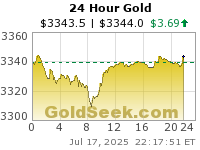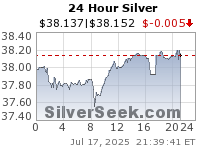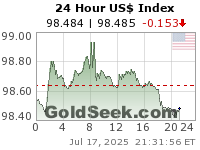Crude oil demand growth will jump by 2.1m barrels a day in 2008 as strong Middle East consumption will offset the US economic slowdown and the impact of record prices, the International Energy Agency (IEA) said on Friday.
The revised forecast is about 200,000 b/d higher than last month’s IEA estimate of a growth of 1.9m b/d and it is significantly higher than the Organisation of the Petroleum Exporting Countries’ (Opec) own calculations of growth of just 1.3m b/d.
Opec, the oil cartel which controls 40 per cent of the world’s oil supply, last week rejected an official increase in its production ceiling, warning that demand could be lower than forecast because the impact of the credit squeeze.
However, the IEA, the western countries’ energy watchdog, said that higher output from some Opec countries, such as Iraq, Angola and the United Arab Emirates, would boost the cartel’s real output in December in spite of its decision to leave its official production ceiling unchanged.
“Overall, winter prospects have clearly improved,” the IEA said, “but $90 a barrel oil makes clear that the market is still on edge and is unlikely to relax until the peak weather risks have subsided and a clear trend in Opec supplies is apparent.”
Crude oil prices in New York and London in early morning trading were higher. Nymex West Texas Intermediate crude oil was 48 cents up to $92.73 a barrel while ICE Brent crude oil jumped $1.28 to $93.40 a barrel.
Crude oil prices have been trading in a range of between $85 and almost $100 a barrel since October and hit an all-time high of $99.29 a barrel in late November. High oil prices coupled with rising food cost have boosted inflation around the world.
The IEA said that high oil prices were depressing only marginal demand growth in developed countries, such as the US or Germany. Consumption among rich countries will rise 1.3 per cent next year, it said.
However, in developing countries, the watchdog said that demand would grow 4 per cent in 2008 led by strong economic growth in China, the Middle East and India.
In addition, “most of the largest and fastest-growing emerging countries cap end-user prices, thus insulating consumers and fuelling strong oil demand growth,” the IEA said in its monthly oil report.
The jump in consumption in 2008 will force Opec to pump more than initially forecast or to draw down inventories as non-Opec supply is expected to grow by only 1m b/d. In spite of the gap between demand and non-Opec supply, next year’s increase will be an acceleration from 2007’s meagre growth of 0.5m b/d.
Crude oil and products inventories have already fallen below the 5-year average, the IEA said. In October, the inventories equalled 52.6 days of demand, down from 55 days during the spring and 54 days in the summer.
Labels: News
NEW YORK (MarketWatch) -- Gold futures extended their decline on Thursday, coming under pressure amid falling crude-oil prices and firmness in the U.S. dollar.
Gold for February delivery dropped $9.70 at $794 an ounce on the New York Mercantile Exchange. Other metals prices also traded lower.
On Wednesday, gold futures dropped $3.90 to finish at $803.70.
"With both oil and the dollar beginning to reverse their trends as year-end profit taking emerges, it looks as if gold will continue to see pockets of pressure," said James Moore, an analyst at TheBullionDesk.com, in research note.
"However, we don't expect gold to drop significantly lower as scaled down buying emerges from the physical sector, while the sensitivity in the credit/sub-prime issues continues to draw investment demand," he said.
The dollar index, which tracks the performance of the greenback against a basket of other major currencies, rose 0.4% at 76.710.
"The U.S. dollar is firm on improved technicals and improved U.S. fundamentals that have damped speculation of a 50 basis point Fed rate cut next week," said analysts at Brown Brothers Harriman in a research note.
Crude-oil futures fell 78 cents to $86.71 a barrel in electronic trading on the Nymex. On Wednesday, crude-oil futures erased earlier gains and closed lower after a government report showed U.S. crude inventories slumped 8 million barrels to the lowest in nearly three years, but heating oil and gasoline inventories increased unexpectedly.
Also on Nymex on Thursday, March silver fell 25.50 cents at $14.205 an ounce, January platinum dropped $7.30 at $1,461 an ounce and March palladium declined $4.45 to $350 an ounce.
December copper edged down 2 cents at $2.9960 a pound.
Gold warehouse inventories declined by 30,159 troy ounces to stand at 7.4 million troy ounces as of late Wednesday, according to Nymex data.
Silver stockpiles fell by 57,664 troy ounces to 134 million troy ounces and copper supplies edged down 225 short tons to 17,743 short tons.
Labels: News
Gold was up $5.10 to $788.20 per ounce in New York yesterday and silver was up 9 cents to $14.07 per ounce. Gold rallied after the close in the New York Access Market and subsequently was flat in Asia before rallying again in trading in London to $794 per ounce at 1200 GMT.
Gold is trading at £384 GBP (up from £379) and €539 EUR (up from €534).
Gold is consolidating after its recent surge in price - gold rallied 28% from late August until early November and thus needed to consolidate. Such is the nature of bull markets with a continual series of two steps forward and then one step back. We are in another one step back phase which may continue to year end prior to the next stage in this secular gold bull market. However since 2001 gold has had a tendency to surprise to the upside and confound the bears and gold may confound again.
Importantly besides the obvious increasing macroeconomic and systemic risk leading to safe haven demand (more below), the serious supply/demand imbalance remains. Record-high gold prices are not resulting in increased global gold production. The world's major producers such as South Africa and Australia are still experiencing declines in production despite gold's bull market. Australia produced 61.7 tonnes, or about 2 million ounces, of gold in the three months to September 30, down about 1.7 per cent on the June quarter, according to Melbourne mining consultants Surbiton Associates Pty.
The European Central Bank said that it sold 42 tonnes of gold on Friday, in conformity with the central bank's gold agreement of which it is a signatory. That agreement limits combined annual sales by E.U. central banks to 500 tons a year until 2009. This is quite a small amount of gold and should be kept in perspective - considering that the gold ETF has attracted demand of more than 800 tonnes in the last year alone.
Global demand continues to increase significantly. Demand from the subcontinent of India alone dwarfs these gold sales. In 2006, India consumed 715.5 metric tonnes of gold -- about a fifth of global demand. This year, India's gold buying is on track to jump more than 50%. That easily offsets declines in the U.S., the second largest gold jewelry market.
China's demand for gold continues to surge. Bloomberg reports that China's demand for gold jewelry may increase by about 20 percent this year as rising personal incomes help it to race ahead of the U.S. as the world's second-biggest market, researcher GFMS Ltd. said today. Gold for use in jewelry in China jumped 24 percent from a year earlier to 221 metric tonnes in the first nine months.
As we go forward European central banks are likely to cut back on gold sales and may adopt the Federal Reserve's policy of not selling any gold reserves whatsover. The Federal Reserve remains the world's largest holder of gold (they are believed to hold some 8,400 tonnes.) With Russian, South American, Asian and Chinese central bank demand increasing it is likely that central banks will become net gold buyers again in the near future.
The credit crisis has gone way beyond a mere subprime crisis and is now a deepening property and credit crisis. UK commercial property is the latest property sector to be severely affected by falling prices. The FT reports that the shadow of the 1990s UK property crash is looming over the industry as deal volumes collapse to a third of their previous level and property funds take further drastic steps to prevent a liquidity crisis. Deutsche Bank was the latest fund manager to alarm the sector as it told investors in its RREEF UK core real estate funds – worth £1.3bn – they would have to wait up to a year to sell units. Triton, a £2.3bn property unit trust run by UBS, and Morley’s £1bn pooled pension property fund have also invoked 12-month waiting periods. The credit squeeze has further damaged sentiment in a sector which has already suffered consistent falls in property share prices since the new year. The crisis of confidence in unlisted UK property funds comes amid slumping deal volumes in the underlying market as buyers struggle to get their hands on debt.
The illiquidity of property is one of its greatest disadvantages especially in a property correction or crash. Conversely it is one of gold's great strengths, as the gold market is one of the most liquid marketplaces in the world. This dawning realisation will reinforce a global reappraisal of risk which will lead to increasing demand for gold.
Silver
Silver is trading at $14.20/24 at 1200 GMT.
Oil
World oil prices paused close to 90 dollars a barrel Tuesday on the eve of a crucial OPEC production meeting in Abu Dhabi. New York's main contract, light sweet crude for January delivery, eased six cents to 89.25 dollars per barrel. Brent North Sea crude for January slipped by 19 cents to 89.61 dollars.
The Organization of the Petroleum Exporting Countries (OPEC) was due to hold a production meeting in the United Arab Emirates capital on Wednesday. However, uncertainty hangs over the outcome, despite a prediction by analysts that the 13-nation cartel would keep production unchanged because of lower crude prices. Prices rebounded Monday in choppy trade as speculation grew that OPEC may keep the status quo.
Labels: News



